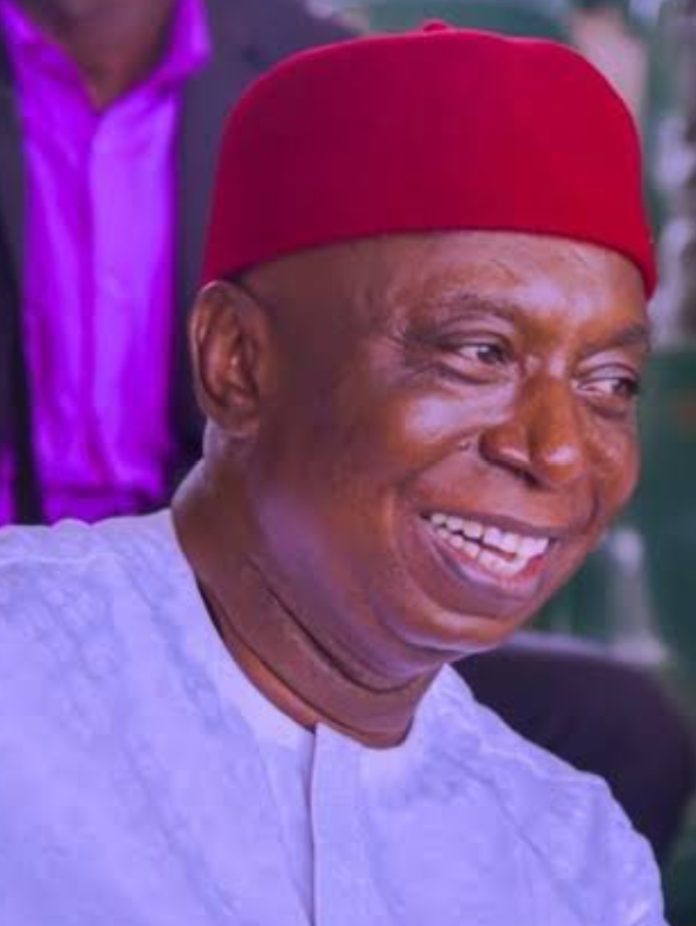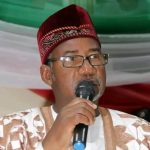BY AUSTIN OYIBODE
Senator Ned Nwoko’s departure from the Peoples Democratic Party (PDP) to the All Progressives Congress (APC) is more than just another defection, it is a seismic shift that could reshape the political landscape of Delta North and beyond.
As one of the region’s most influential politicians, his move threatens to destabilize the PDP’s long-standing dominance and set the stage for a fierce contest in the 2027 general elections.
Nwoko, a seasoned political strategist, has made it clear that he knows the PDP’s inner workings and weaknesses. His assertion that the party will lose Delta State in 2027 is not mere rhetoric but a calculated declaration from someone who has been at the heart of its operations. His defection is not just a personal decision; it is a strategic move that could trigger a chain reaction of realignments within the state’s political structure.
For years, the PDP has held a firm grip on Delta North, relying on a network of patronage and alliances. However, Nwoko’s exit exposes growing cracks in the party’s foundation. While some PDP leaders attempt to downplay his departure, their actions tell a different story.
The party’s frantic meetings and the exaggerated affirmations of confidence in the governor are clear indications of internal panic. The reality is that losing a political heavyweight like Nwoko is not just a setback, it is a looming disaster.
The PDP’s response to his defection has been predictable: dismissive in public, yet deeply troubled in private. Beneath the surface, there is an unspoken acknowledgment that Nwoko’s influence extends far beyond party lines. His legislative achievements, his philanthropy, and his deep grassroots connections have solidified his standing as a force to be reckoned with.
Nwoko’s defection is a major win for the APC, a party that has long struggled to gain a foothold in Delta North. His move provides the opposition with a rare opportunity to challenge the PDP’s historical dominance.
With his extensive network, financial backing, and widespread popularity, Nwoko brings to the APC what it has long lacked in Delta: a credible and formidable political figure capable of shifting electoral dynamics.
For the APC, this is not just about gaining a high-profile politician; it is about acquiring a political strategist who understands how to dismantle the PDP’s electoral machinery from within.
If leveraged correctly, Nwoko’s defection could pave the way for more PDP members to jump ship, triggering a mass exodus that would weaken the party ahead of 2027.
Nwoko’s defection is more than an individual move; it is a signal of a broader political realignment. With his strong appeal among youths, women, and grassroots supporters, his departure leaves a void in the PDP that will be difficult to fill. The party must now scramble to find a new standard-bearer capable of countering his influence—an uphill task given his entrenched popularity.
Moreover, his defection raises serious questions about the PDP’s internal stability. If one of its most prominent figures can abandon ship, what does that say about the party’s ability to hold its ground in 2027? The optics are damaging, reinforcing the perception that the PDP is struggling to maintain cohesion in the face of growing opposition.
As the dust settles, one thing is clear: Nwoko’s defection is not just another political maneuver; it is a defining moment in Delta politics. The PDP must now confront an uncomfortable reality, it is no longer the unchallenged powerhouse it once was. The APC, with Nwoko as a key player, now has a legitimate shot at reshaping the political balance of the state.
The 2027 elections will be a battleground, and the PDP cannot afford to underestimate the significance of Nwoko’s departure. Whether the party can recover from this blow remains to be seen, but one thing is certain: Delta’s political landscape will never be the same again.

















